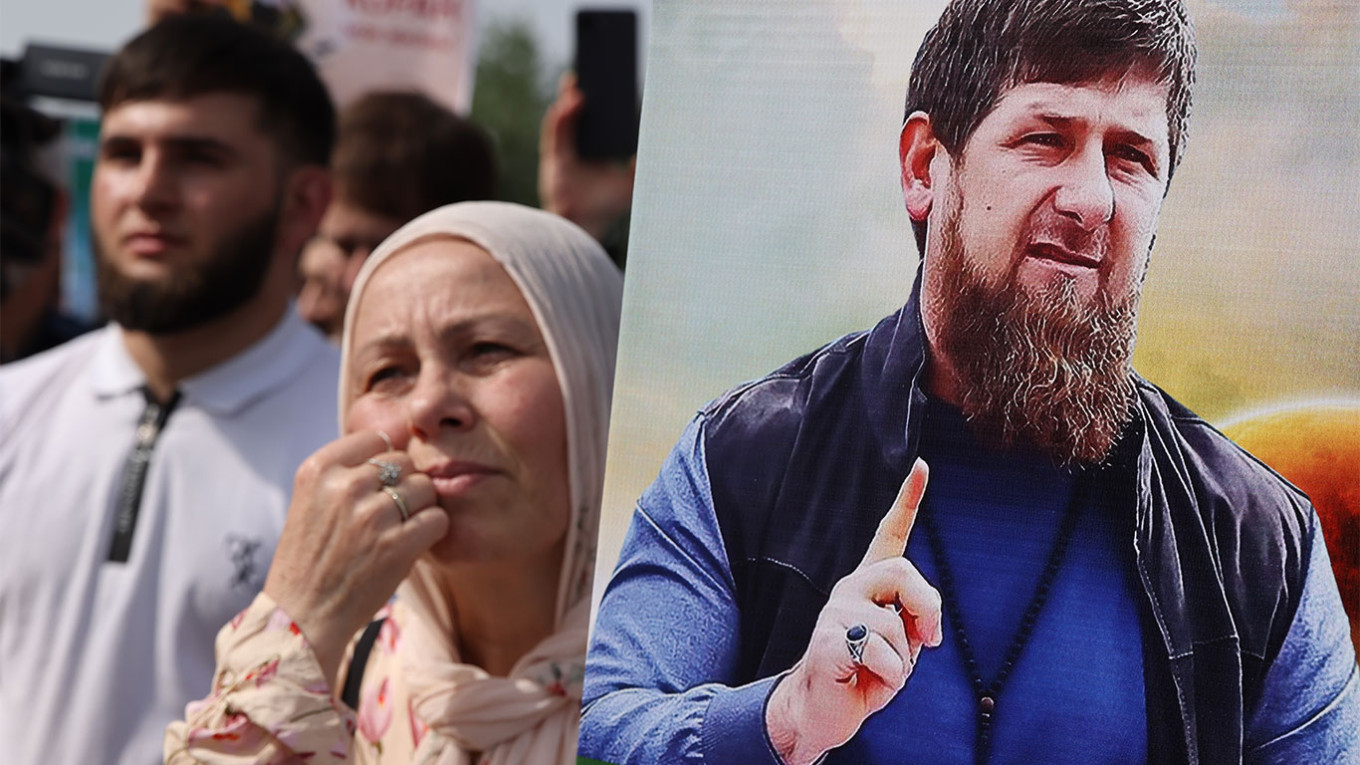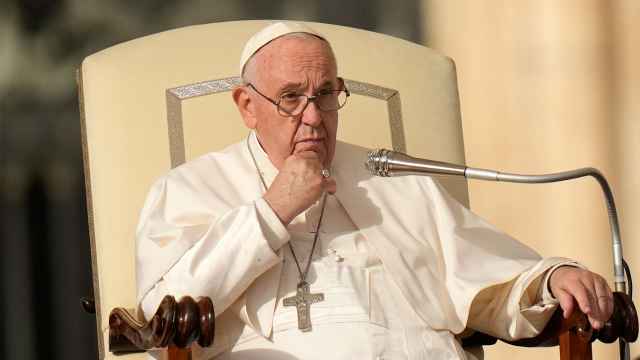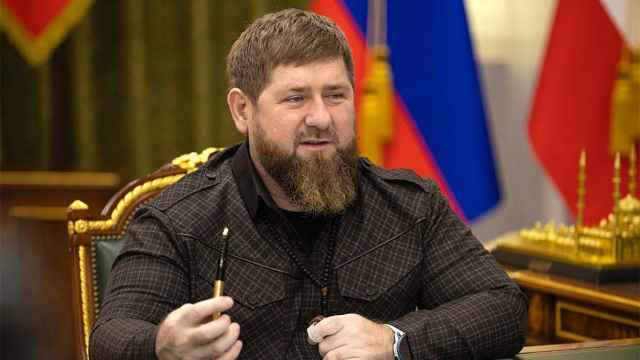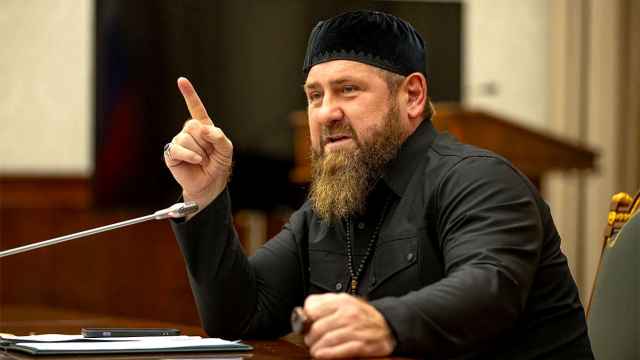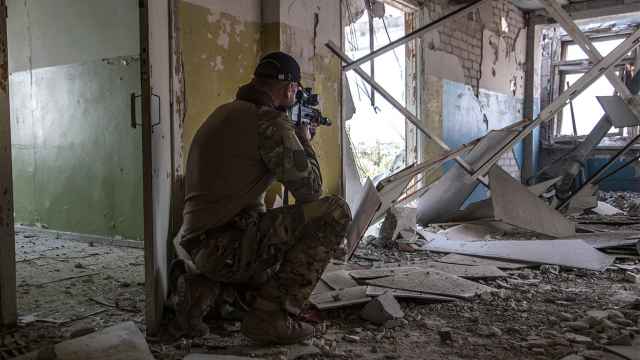Over the past couple of weeks, events in Chechnya have shown the Kadyrov regime to be less than the beacon of order and stability it likes to portray itself as. Mass abductions coinciding with changes in top personnel have made the republic appear to be in tumult.
Such an interpretation, however, would be misleading, playing into the pitfalls of gauging the stability of authoritarian systems. If anything, these events underscore the current strength of the Kadyrov regime.
On May 6, Chechen opposition blogger Tumso Abdurakhmanov shared a video in which a man in a suburb of Grozny burned a car that bore symbols associated with Adam Kadyrov, Ramzan’s 16-year-old son who is notorious for emulating his father. The authorities almost immediately began hunting for the perpetrator of this act of protest.
Around ninety people were abducted from Starye Atagi and Shali in connection with the burning. Some victims have been released, although many remain in custody at an unknown location. One of the abducted, Abdullakh Magomadov, was killed through torture, with another death believed to be connected to the abductions.
The authorities also targeted the relatives of suspects, a tactic intended to dissuade onlookers from behavior that could have violent repercussions for their loved ones and to incentivize families to intervene against rebellious behavior. This mass kidnapping alone makes May 2024 the worst month for abductions in Chechnya in over a year, according to data compiled by the opposition movement 1ADAT.
Several commentators have argued that this level of response illustrates the regime’s weakness. But this enters the pitfall of how stability and strength are thought of in authoritarian regimes. Strength is implicitly assumed to be rooted in a regime’s popular legitimacy. Thus, crackdowns on public demonstrations are thought to indicate weakness. While this may be accurate in countries where the state is founded on popularity, this is by no means a guarantee in regimes like Kadyrov’s and Putin’s that are built entirely on violence.
The mass abduction of dozens connected to the fire starter is a straightforward continuation of Kadyrov’s counterinsurgency strategy.
It differs considerably from perhaps the most comparable incident, December 2022’s raids in Urus-Martan. Then, a severe crackdown came in the wake of societal ridicule at a fight between members of the Kadyrovtsy. That the public viewed Kadyrov’s personal militia as a joke directly undermined the regime’s ability to exercise force, which they predominantly do by seeking to create an atmosphere of fear.
In contrast, the targeted symbolic attack on Adam Kadyrov undermined the regime in a more indirect way. If anything, rather than depicting a republic in chaos, the scope of the retribution speaks to Adam’s newfound and growing influence. While he lacks a formal role in politics, his shadow looms large enough to inspire such terror.
The series of high-level resignations and re-appointments may make the Kadyrov regime look unstable, but they are evidence of its current authoritarian strength. These personnel moves were to clear a path for the rise of the new generation. The speaker of parliament remains unfilled, with veteran official Shaid Zhamaldaev temporarily serving in this role. The re-shuffling is not yet complete.
The two main movers are the former Chechen parliament speaker, now Prime Minister Magomed Daudov and the man he succeeded, Muslim Khuchiev. This move kept Daudov in Chechnya, where he managed the regime’s affairs for a decade. However, the regime apparently sought a different appointment, advocating through Grozny-aligned media for Daudov to be appointed head of Ingushetia. Kadyrov, who has long pursued greater influence over the neighboring republic, attributed the rumors to “Ingush provocateurs.”
Kuchiev has now joined the office of Russian Prime Minister Mikhail Mishustin as an advisor. This promotes yet another of Kadyrov’s loyal, veteran agents into the federal ministries, along with Deputy Chief of the Russian Armed Forces’ Main Military-Political Directorate Apti Alaudinov and advisor to the emergency services minister Daniil Martynov.
Khuchiev and Daudov’s re-assignments cleared the path for the new generation to continue their rise within Chechnya. The eldest Kadyrov son, Akhmat, became the physical culture and sport minister, with his old job as youth politics minister taken over by a son of Ramzan Kadyrov’s oldest friend. Finally, Temirlan Khuchiev, son of the ex-Prime Minister, became the industry and energy minister.
Both the precise appointments and their timing came as a surprise. What exactly motivated this abrupt flurry of activity continues to remain a mystery, made even greater due to its coinciding with the ongoing purge of the Defense Ministry after President Putin assembled his new government. The general direction of the moves comes as no surprise.
The generational transition in the republic has long been underway and is only going to continue. This integration and promotion of the old guard’s children within the regime is the most compelling explanation for the turnover, given the currently available information.
Conducting so many simultaneous personnel changes unprompted — as this seemingly was — can only come from a place of strength, even if the regime is in turmoil. I will concede that it does not hurt when most of your officials are engaged less meaningfully in their roles, relying instead on the work of lower ministerial employees. Regardless, mass reshuffles typically provoke an image of instability — look at the Russian Defense Ministry.
Mishustin’s rapid integration of Khuchiev emphasizes the strength of Kadyrov’s regime at the federal level. Not just anyone could have brought about such a fast transition for their regional prime minister, no matter how experienced they may be. That this move comes on the back of Alaudinov’s promotion and the Kremlin’s purge of the Defense Ministry only serves to further underscore Kadyrov’s current strength.
As the generational transition continues, observers must brace themselves for more raids. Large-scale ministerial reshuffles will eventually happen less frequently but, for now, what happens in the Kremlin will accompany the changing bureaucratic guard in the Kadyrov regime. A similar occurrence should be expected around the end of this year after Ali Kadyrov, Ramzan’s second son, comes of age in December.
The fact remains that, while many wish to see Chechnya become unstable for myriad reasons, the Kadyrov regime remains strong. Despite what it may seem, neither the mass abductions nor the personnel moves truly create instability. However, if more acts of resistance occur, they could inspire more people to escalate the amount of pressure piled on to the regime.
A Message from The Moscow Times:
Dear readers,
We are facing unprecedented challenges. Russia's Prosecutor General's Office has designated The Moscow Times as an "undesirable" organization, criminalizing our work and putting our staff at risk of prosecution. This follows our earlier unjust labeling as a "foreign agent."
These actions are direct attempts to silence independent journalism in Russia. The authorities claim our work "discredits the decisions of the Russian leadership." We see things differently: we strive to provide accurate, unbiased reporting on Russia.
We, the journalists of The Moscow Times, refuse to be silenced. But to continue our work, we need your help.
Your support, no matter how small, makes a world of difference. If you can, please support us monthly starting from just $2. It's quick to set up, and every contribution makes a significant impact.
By supporting The Moscow Times, you're defending open, independent journalism in the face of repression. Thank you for standing with us.
Remind me later.


